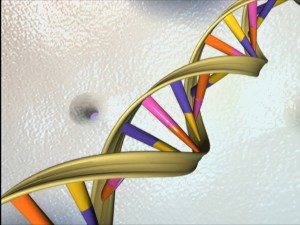To celebrate the 10th anniversary of researchers producing the first complete human genome sequence — the genetic blueprint of the human body — the Smithsonian’s National Museum of Natural History will open a new high-tech, high-intensity exhibition in 2013. The exhibition will result from a collaboration between the Natural History Museum and the National Human Genome Research Institute of the National Institutes of Health.
The Life Technologies Foundation, the philanthropic arm of Life Technologies Corp. of Carlsbad, Calif., has pledged $3 million to fund the exhibition.
“The completed sequence of the human genome gave us the first glimpse of the massive instruction book that orchestrates all the complexities of human biology,” says Eric D. Green, director of the National Human Genome Research Institute. “We want to help the public see how the Human Genome Project has given birth to a modern era of genomics, expanding our knowledge of the human body in health and disease, and our understanding of biodiversity in the natural world.”
The Human Genome Project was launched in 1990, with support from the U.S. government and a number of international institutions. Scientists sequenced the human genome, as well as the genomes of other organisms, providing powerful insights into how genomes contribute to the evolution, development and diversity of all living things.
“The Human Genome Project has empowered not just a revolution in medicine, but a revolution in biotechnology, evolutionary biology, ecology and conservation, all of which are central to Smithsonian research,” says Cristián Samper, director of the Natural History Museum.
The exhibition will be organized around several themes, including the genome and you, the natural world, health, and humanity. It will provide museum goers with new ways to look at themselves as individuals, as members of a family and a species. They also will discover how scientists use genomics to establish links between genes and specific diseases and traits, as well as the latest advances in genomic medicine, prenatal testing and genomically guided drug therapy.





